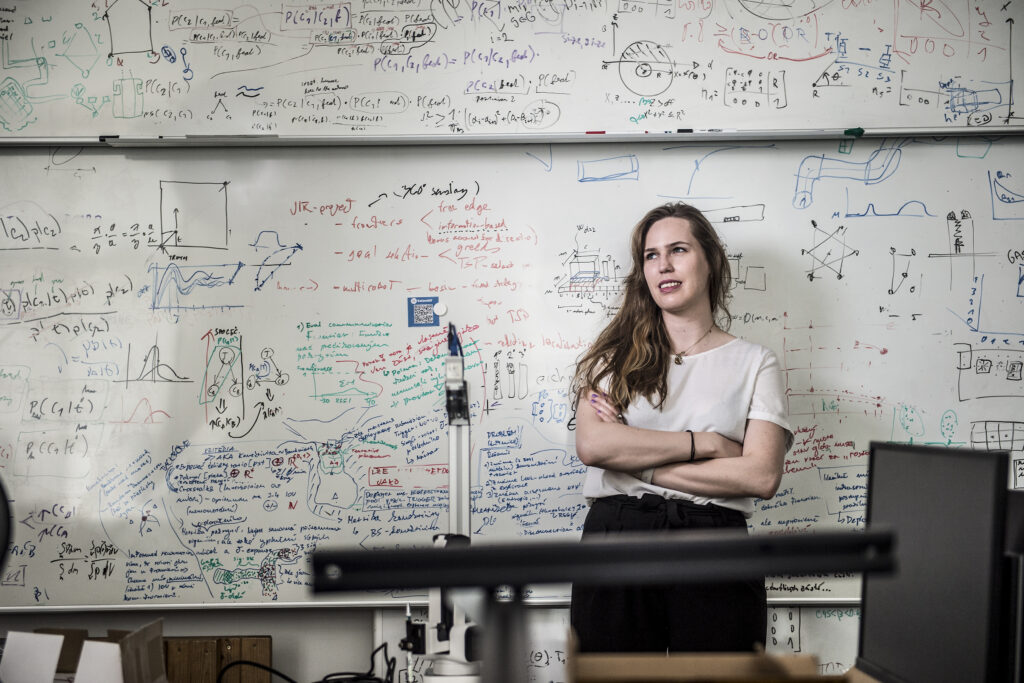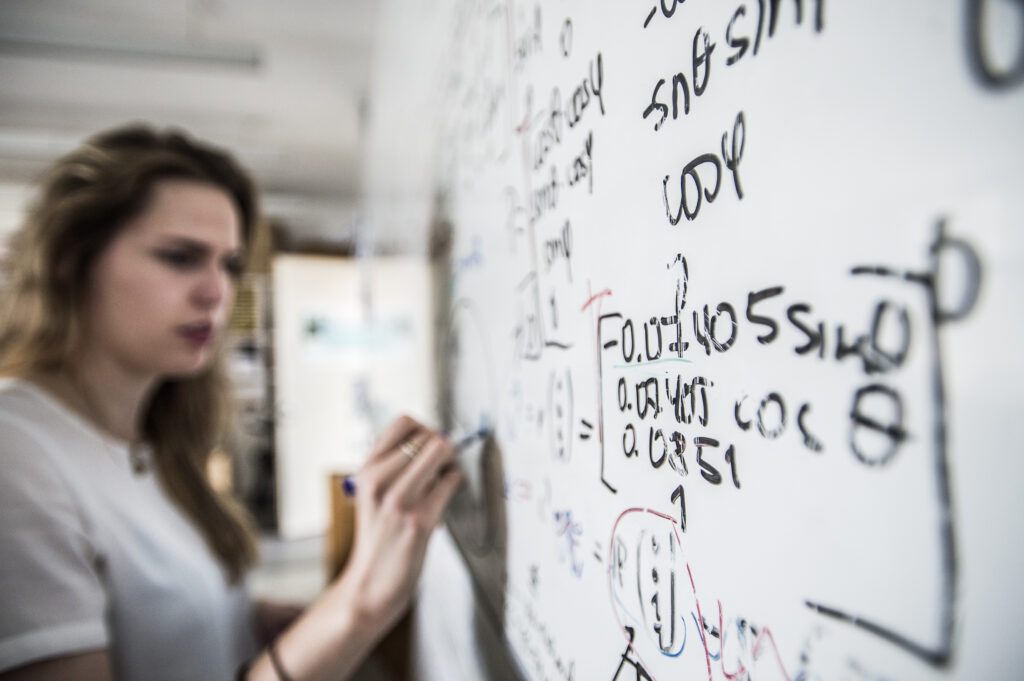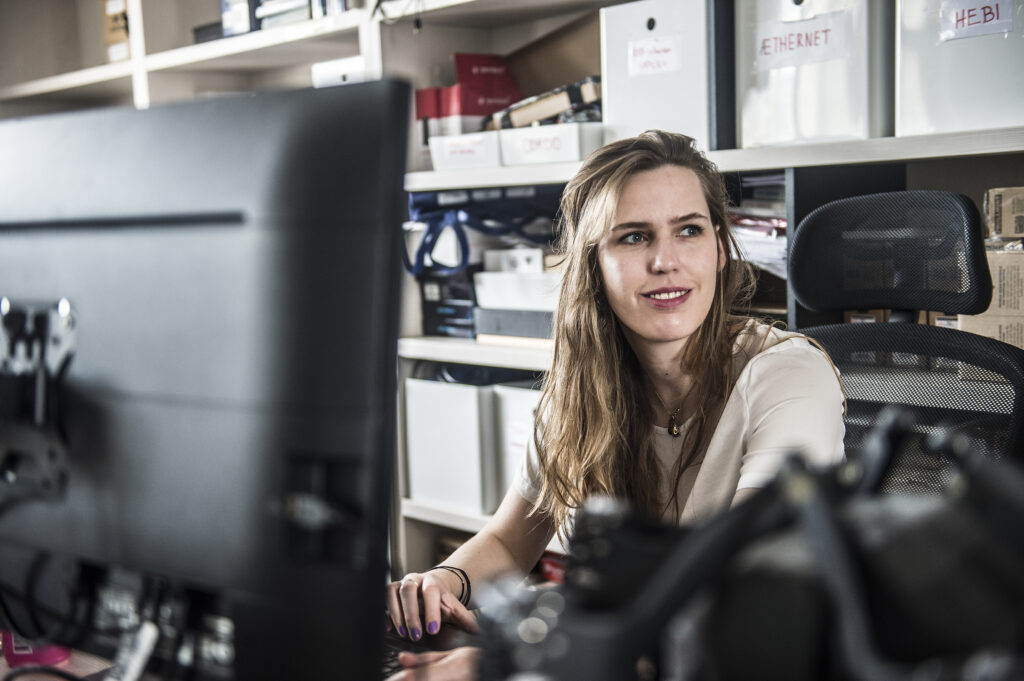As a child, she dreamed of being Indiana Jones, now she explores how autonomous robots can chart their paths through complex and unpredictable environments. Jindřiška Deckerová, a PhD researcher at CTU in Prague, focuses on the theory behind robotic movement and decision-making. In this Women of ROBOPROX interview, she reflects on her path from archaeology to algorithms, shares how she keeps her research (and herself) on track, and talks about her role in the ROBOPROX Women Forum.

Could you share the story behind your decision to enter this field?
Honestly, it happened over time. Even though I originally wanted to be an archaeologist (like Indiana Jones) I have always liked math and solving problems. I attended technical seminars at my high school and found myself enjoying computer science, so I decided to study software engineering. Later at college, I decided to go for something more theoretical for my thesis, and one robotic lab really caught my attention during a departmental job fair. Their presentation stuck with me — and now, a few years later, I’m still in that very lab.
How do you remember your early days – what first hooked you on programming or robotics?
It was my bachelor’s thesis. I was given a robotics-related problem and had to tackle it from start to finish — read the literature, design a solution (with the help of my supervisor), implement it, and write everything up. It was not easy, but still, I liked the whole process. I think it was the journey from an idea to a problem-solving solution that pulled me in.

In past interviews, you mentioned your journey wasn’t always easy. What helped you get through the toughest moments?
Good support, perspective, and boundaries. Taking breaks helped a lot, so did working with a therapist. One of the biggest shifts for me was learning to say “no” and to choose projects intentionally instead of trying to do everything. That gave me room to focus, grow, and enjoy the work again.
How do you maintain motivation during challenging research phases?
When I’m overwhelmed with difficult tasks, I break down the chaos into structure. I make a list of small, manageable tasks, assign priorities and deadlines, and then just start with the first one. Checking off small tasks gives me a sense of progress. And that’s what keeps me going during the tough stretches.
What moments in your career made you feel most proud or accomplished?
Definitely when I receive positive reviews on my research. It means a lot to hear that people outside my lab see value in the work I’ve done. That kind of recognition reminds me I’m contributing to something bigger, and that’s incredibly rewarding.
How are you involved in the ROBOPROX project? Can you sum up your role in ROBOPROX Women Forum?
I’m involved in ROBOPROX as a researcher in Research Area 10, focusing on robotic routing in dynamic human-populated industrial environments. My work, under the supervision of Prof. Faigl, centers on planning paths for robots in complex environments with obstacles, often involving combinatorial and continuous optimization.
My role in the ROBOPROX Women Forum is quite simple — just make sure everyone gets an equal opportunity and support. Fortunately, the forum already provides such a supportive space, with, e.g., scholarships.
You inspire other girls to get into tech – why do you think representation matters so much?
Representation matters because we tend to imagine our future based on what we see around us. I once considered becoming a lawyer just because I had watched Legally Blonde too many times! When young girls see women succeeding in science, tech, or engineering (on TV, in school, or in real life), it shows them that these paths are open to them too.

What skills or qualities do you think are most important for young women starting out in STEM today?
The most important thing is curiosity — enjoying what you study and being willing to explore it further. Logical thinking helps, sure, but most skills can be learned with time and effort. Don’t be discouraged if you don’t “feel like a natural”, that’s not how most of us start out.
What do you think schools or society could do better to support girls who want to study STEM fields?
We can start by truly supporting their interests through encouragement, equal opportunities, and strong role models. I was lucky to have support from my family and high school, but not everyone gets that. It’s still far too common to hear about teachers or peers discouraging girls from pursuing math or science. Everyone deserves the chance to follow a path they’re passionate about, regardless of gender or background.
And by the way, did you know many of the first computer programmers were women? Some even helped send astronauts to the Moon. That legacy should inspire today’s generation to keep pushing forward.
What advice would you give to young people who feel like they’re “not good enough” for tech or science?
“Good enough” is such a vague idea. If you’re curious, if you enjoy asking questions, solving problems, or learning how things work, then you absolutely belong in science or tech. Most people don’t start out as experts; they grow into it. You just need to be open to learning.
If you could send a message to your younger self, what would you say?
Don’t do a PhD… Okay, maybe do it, but only if you really enjoy the topic. It’s a long, sometimes difficult road. But without it, I wouldn’t be doing the kind of research I like. So maybe the real advice is: choose what excites you, and give yourself permission to change direction if you need to, learn how to say “no”, and don’t be afraid to fail.
About Jindřiška
I’m a PhD student at the Faculty of Electrical Engineering, Czech Technical University in Prague (FEE CTU), where I focus on robotic routing problems and tour construction in complex environments. My research explores how autonomous robots can efficiently collect data or complete missions under real-world constraints such as obstacles, limited sensing ranges, or dynamic conditions. Much of my work is centered around variants of the Traveling Salesman Problem (TSP) and its generalizations.
Since 2021, I’ve been conducting my PhD research in the Computational Robotics Laboratory at the Artificial Intelligence Center (AIC) within FEE CTU. I hold a Master’s degree in Artificial Intelligence and a Bachelor’s degree in Software Systems, both from FEE CTU.

My work is primarily theoretical, with a strong emphasis on modeling and algorithm development, aimed at advancing autonomous decision-making in complex and structured environments.
In addition to my research, I’m passionate about teaching, mentoring, and public outreach. I’ve been involved in initiatives aimed at making science more accessible, including organizing the Become a Scientist for a Day workshop on robotics and contributing to the science podcast Věda bez cenzury, where I talk about research, PhD, and college life.
